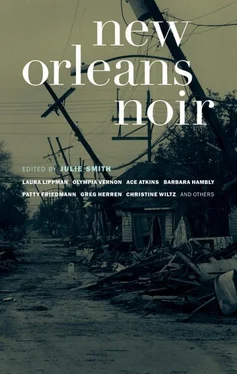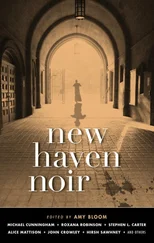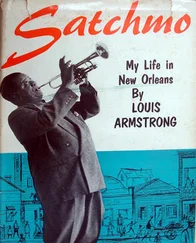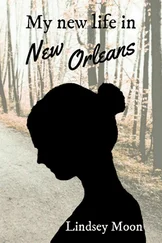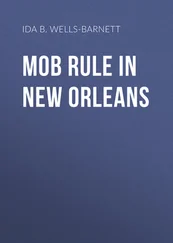“In partnership with a Confederate who either died or was taken out of the game somehow. The Confederate’s coded directions to the money is probably what’s in our friend’s hands — and I’d guess our friend has only recently learned that the books containing the key were Bibles owned by Buling and the Confederate.”
“How would he find out?”
“Probably the same way you did,” said Hannibal. “The Confederate may very well have been our friend’s uncle or father, the same way Buling was related to you.”
January nodded. “However he found it out, he did find it out. But since Buling counted the letters as if the Bible were an ordinary book — from the top of the page, rather than by chapter and verse — our friend needs to have the identical edition to decode them. Obviously he doesn’t: his relative’s Bible having disappeared in the intervening years, leaving only the coded message itself. So all he could do was trace Buling’s.”
Williams scowled, and she rubbed gingerly at the bandages January had put on her arm. “That means he’ll be back, don’t it?”
“If he’s come this far, I think it definitely means he’ll be back.”
Her eyes narrowed, cold as a wild pig’s. “Thinks he can go cuttin’ up Delly an’ whoever gets in his way... I’ll be ready for him when he comes back...”
“It will probably be with Confederates of his own,” pointed out Hannibal. “Bella, horrida bella, et Thybrim multo spumantem sanguine cerno...”
“Oh, I think we can deal with our friend without causing the river to run red with blood.” January picked up the Bible and thumbed again to the torn-out page at the back. “And if we’re lucky, compensate poor Delly for her injuries as well.”
It didn’t take January long to locate the culprit. It was all a question of knowing who to ask. The Carnival season was in full swing, and he and Hannibal were playing that night at a ball in one of the great American mansions that lined St. Charles Avenue, upriver from the old French town. In between sets of marches and quadrilles, waltzes and schottisches, January made it his business to nod smiling greetings to every one of the dozen or so physicians who attended, men with whom he’d worked at the Charity Hospital during the summer epidemics of cholera and yellow fever. These greetings led to soft-voiced chats and a little friendly joshing about his “winter job” from white men who hadn’t the slightest idea what it was like to be denied work because of the color of their skin. From this, January deftly steered the conversation to inquiries about a thin-faced white man with a Vandyke beard, probably at a hotel, who’d called in a physician’s services that morning for knife wounds...
By the end of the evening he knew that the man who’d knifed Delly — and who’d been cut in return by Kentucky Williams — was Matthew Porter of St. Louis. St. Louis, January recalled, being the city from which Major-General Wilkinson had governed the Louisiana Territory in 1806.
Since January was a law-abiding soul, even when the laws included Black Codes that forbade him among other things to smoke cigars in public, the following morning he consulted the City Guard, in the person of his friend Lieutenant Abishag Shaw. He suspected it would do him no good and his suspicion was rapidly confirmed.
“Iff’n you want me to, I’ll speak to Captain Tremouille about it,” offered Lieutenant Shaw, scratching his verminous hair. “But I’ll tell you right now what he’ll say: that we got too few men — ’specially now in Carnival season — to go chasin’ after a white man who’ll just say he never knifed no nigger gal in his life. No jury in town’s gonna convict him of it on the word of a Salt River man-eater like Kentucky Williams anyways.”
His due to law and order paid, January then took a long walk into the genuine swamp beyond the Swamp, the ciprière: the maze of small bayous, impenetrable tangles of palmetto and hackberry, tall silent groves of cypress and magnolia that lay between New Orleans and the lake. Few white men came here. Even now, in the winter with the ground mostly dry, it was easy to become lost, even for January who’d been raised with a slave-child’s awareness of the invisible geography of landmarks, paths, rendezvous points. In the summer it was a nightmarish jungle of standing water, gators, snakes, and mosquitoes that would swarm a man like a living brown blanket.
He wasn’t sure if there was still a runaway slave village somewhere west of Bayou St. John, but as he quartered the squishy ground he would occasionally see fish lines in the bayous, or red flannel juju-bags hanging from the trees. He was just beginning to wonder if he’d have to abandon his quest and return to town — he would be playing at a subscription ball at the Théâtre d’Orléans that night — when he turned his head and saw, standing in the deep oyster grass across a murky little bayou, the one man in New Orleans taller than his own 6'3" height: massive, African-black like himself, clothed in rags with only a muscular stump where his left arm had been.
Cut-Arm, king of the runaways of the ciprière.
“You not wanderin’ around out here lookin’ for anybody, Music-Master, are you?”
“It just so happens,” said January, “that I am.”
Cut-Arm’s dark eyes narrowed with fury when January spoke of what had happened to Delly, who like most freed slaves in town had some passing acquaintance with the runaways in the ciprière . When January spoke of how he intended to get his revenge, the big runaway’s teeth showed white in a savage grin. “That’s good,” he rumbled. “Maybe not so good as seein’ his blood, but it’ll take a lot longer, and I think he’ll suffer more.”
Thus it was that January was loitering on the brick banquette of Rue Chartres opposite the Strangers Hotel at 10:00 the next morning when a man who fit the description of Matthew Porter emerged from its doors: tallish, well-dressed, his brown Vandyke beard newly barbered, and his right arm in a sling. January’s guess was confirmed a few minutes later when, as Cut-Arm had promised, one of the hotel’s maids came across the street to him and whispered, “He just left. It’s all clear.”
January had taken the precaution of dressing that morning in the simple but respectable dark clothing that could have passed him as either a free workman or an upper servant. Nobody gave him a glance as the woman brought him to one of the smaller guest rooms on the second floor. He’d gambled that Porter would be too cautious of pickpockets to take the coded message — whatever it was — with him when he went out, and a few minutes’ search of the trunk yielded it, tucked of an almanac that was in turn nestled among Porter’s shirts.
It was, as January had suspected, the end leaf torn out of the back of Kentucky Williams’s Bible, covered with neatly inscribed numbers. In his own memorandum book he made a note of the number of lines (thirty-two), the approximate number of characters per line (between forty-seven and fifty-four), and the width of all margins. “Meet me tomorrow,” he said to the maid, handing her a dollar, “at the same place, at the same time as today, bringing me this paper.” He slipped it back into the almanac. “You make a note of what two pages it’s between when you take it out — he may move it, and I don’t want him to guess it’s been messed with. I’ll give you another piece of paper, just like it, to put back in its place. You think you can do that?”
“Shoot.” She grinned. “For two dollars I’d swap out the whole damn almanac one page at a time. Cheap bastard didn’t give me no tip, not even a dime, when I brought him up a bath last night, and pinched my tit into the bargain. You know how heavy it is, luggin’ all that hot water? What is it?” she asked hopefully. “You put a juju on the new piece of paper?”
Читать дальше
